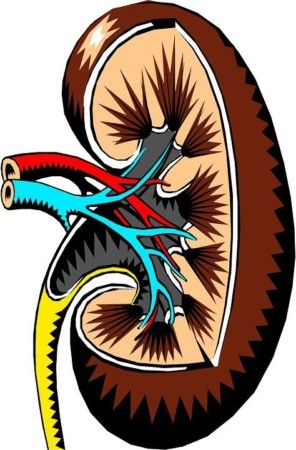Adrenal insufficiency – detection and treatment
Kidney problems are usually recognized very quickly. The organ hurts or you feel changes in the kidney region. However, the situation is different with the adrenal glands (z.B. weakness of the adrenal glands).
This hormone-producing organ, which can be divided into the adrenal cortex and the adrenal medulla, performs many bodily functions.
Much better known are the hormones produced by the organ, namely adrenaline and cortisol. These regulate, among other things, the blood sugar level, but also the salt content of the blood.
In addition, the hormone cortisol influences metabolic processes in the body. But how does an adrenal insufficiency make itself felt?
Not recognizable at first glance
Adrenal insufficiency, as the weakness is also called, can manifest itself in different ways. Only one thing the symptoms have in common: one usually never concludes on the adrenal glands.
This is because the adrenal glands themselves are not a particularly large organ and the problems are not felt directly.
However, the substances formed in this organ are significantly involved in complex processes in the body. A distinction is also made between hyperfunction and hypofunction.
Both of them are undesirable extremes that must be treated at all costs. The symptoms are very different in both cases.
An underfunction can show itself by the fact that the blood sugar level is permanently low, feels tired and listless and often does not have a proper warmth. In some cases, the symptoms are also accompanied by joint, bone and muscle pain.
An overfunction, on the other hand, leads to the opposite symptoms. Instead of low blood sugar levels, patients with hyperfunction usually suffer from very high blood sugar levels.
Affected persons are also sleepless and suffer from a persistent feeling of hunger. A permanently high production of hormones can also lead to an increased tendency to infections and to osteoporosis, also known as bone loss.
Weakness of the adrenal glands can also be manifested by reduced sexual desire and poorer skin condition.
Treatment options for adrenal insufficiency
If adrenal insufficiency is diagnosed, it must be treated immediately. Since hormones perform many and complex tasks, it is important to keep this household in balance.
Hormone replacement therapy is usually the preferred method of treatment. For this purpose, it is first determined which hormones are produced in too high or too low quantities. Then appropriate preparations with the required amounts of active ingredients can be prescribed.
Since adrenaline, cortisol and other adrenal hormones are so-called stress hormones, adrenal insufficiency can also lead to stress situations or even crises.
These Addison’s crises, which are known in the professional literature, represent a special burden for the body. Appropriate amounts of need must be included in the treatment.
How adrenal insufficiency develops?
As diverse as the symptoms are, so are the causes. In Western cultures, stress is often to blame for adrenal insufficiency.
Especially chronic stress often leads to the described problems. If the adrenal glands have to produce stress hormones permanently, they will eventually break down.
Much less often, weakness results from poisoning, excessive exercise, high caffeine consumption, and depression. So it is good to avoid stress and also not to perform excessive strenuous activities permanently or frequently.
Unlike hypothyroidism, adrenal insufficiency is not a permanent weakness.
The exhausted glands of the adrenal glands can recover again. Therefore not only medicines are prescribed, but also a lot of rest.
